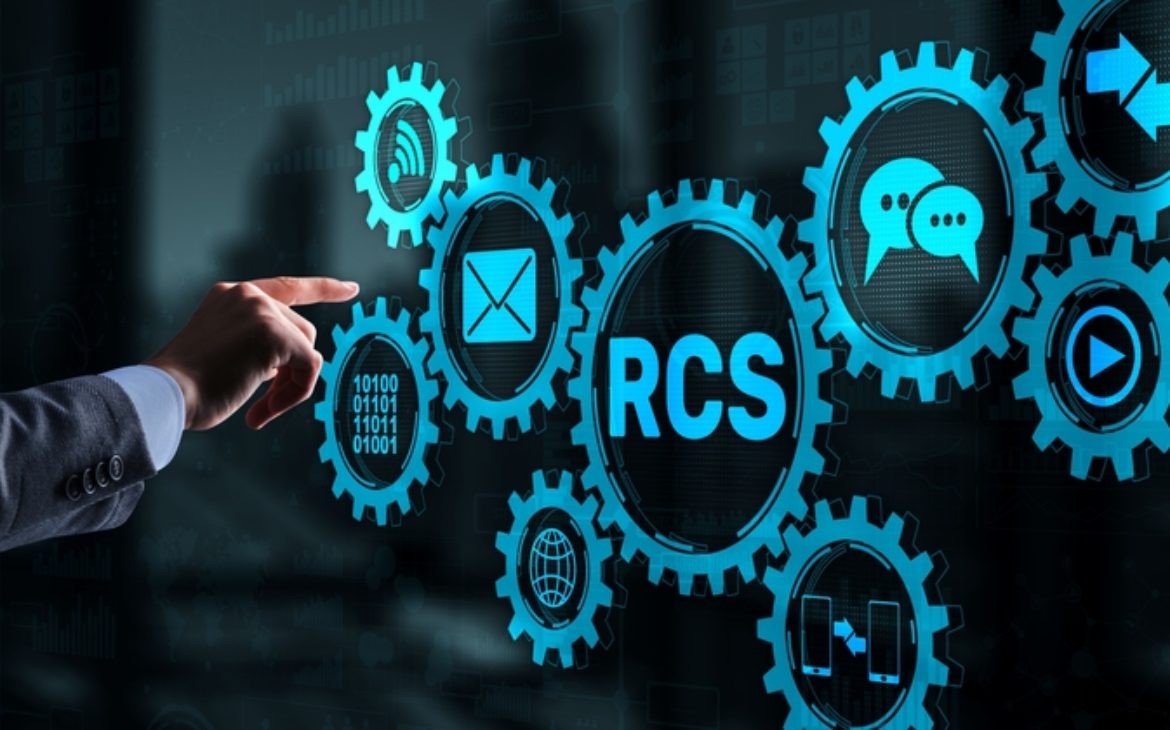When SMS (Short Message Service) was introduced in the early 1990s, mobile technology was in its infancy and the need to transfer large amounts of data was almost non-existent. SMS provided a simple and efficient way of sending short text messages, and soon became the standard of communication among mobile phone users.
We all remember how important the keyboard was on Blackberry mobile phones and how dominant SMS was then. However, as mobile technologies evolved, including smartphones and messaging apps, SMS remained trapped in time as an archaic protocol, unable to meet modern communication needs.
RCS – response to the shortcomings of SMS
RCS (Rich Communication Services) enables sending messages that include multimedia content, group chats, read receipts, and many other functionalities that have become standard with applications such as WhatsApp and Facebook Messenger.
The goal of RCS is to provide a more comprehensive messaging experience that is compatible with all modern mobile devices and networks, while maintaining the simplicity and reliability of traditional SMS.
Overview of RCS protocol development
The development of RCS technology began in 2007 as a response to the need for more advanced communication services that SMS and MMS could not provide. In 2008, the GSMA took the lead in standardizing RCS, creating a universal profile that enabled interoperability among different operators and devices.
A key moment was in 2015 when Google acquired Jibe Mobile and began integrating RCS into Android, accelerating the adoption of the technology. In 2018, Google launched the RCS Chat service, bringing advanced features such as sending high-quality media and group chats.
Since 2019, an increasing number of operators around the world have implemented RCS, making it the universal standard for mobile communication. At the developer conference WWDC 2024, Apple announced that iOS will support the RCS protocol from now on, thus accepting the new standard and bringing the era of SMS to its definite end.
Functional features of the RCS protocol
- One-to-one messaging: Users can exchange conversational messages with another person.
- Audio messages: Users can send audio messages within their one-on-one or group conversations.
- Group chats: Users can create a chat where they invite two or more people, and all participants are aware of the others’ presence.
- Typing indicators: Users know when the other person is responding because typing indicators provide real-time activity information.
- Read receipts: Users know when a message has been read.
- Enriched calls: Users can share content before, during and after a voice call.
- Interactive messages: The “rich card” allows companies to send interactive messages with possible responses or actions. For example, a restaurant sends an RCS message with a “rich card” that displays the menu, and the user orders directly from the messaging app.
- File transfer: Users can send files – images, videos or documents – within their one-on-one or group chats.
- Location sharing: Users can easily share location information in one-on-one or group chats.
- Multi-device messaging: Users can register and use multiple devices under one identity, and are not tied to just a number as identification.
- Messaging as a Platform (MaaP) and chatbots: Users can enable MaaP, which allows businesses to send messages to users through automated programs, or chatbots, that can communicate with users in a natural language format. This feature, combined with interactive messages, will significantly contribute to the user experience when communicating with businesses.
- Enhanced security: RCS can provide client authentication, user authentication, encryption, and secure storage of authentication and identification data.
Advantages and challenges of RCS in modern communication
RCS brings numerous benefits to individuals and organizations, including an enhanced messaging experience with rich media, group chats, file transfers, and voice and video calling. Companies can use RCS to send multimedia messages such as product catalogs and personalized promotions, which improve customer engagement.
Mobile operators can generate revenue by selling enhanced messaging services, while RCS enables better collaboration through group chats and file transfers. RCS is supported by a growing number of messaging applications and uses advanced security protocols to protect messages.
However, RCS faces challenges such as lack of interoperability as it is not supported by all mobile phones, including Apple devices until recently. Security protocols vary among operators, creating potential vulnerabilities. Transmission of rich media can cause network congestion and higher latency compared to SMS messages. Lack of user awareness of RCS, competition from popular messaging applications, and technical complexity and implementation costs further hamper the wider adoption of this technology.
What does the future hold for RCS?
RCS technology represents a significant step forward in the evolution of mobile communication, upgrading traditional SMS and MMS services with advanced functionalities adapted to the modern needs of users. By enabling multimedia messaging, group chats, read receipts and many other features, RCS provides a rich and interactive communication experience.
Despite its many advantages, RCS faces challenges such as lack of interoperability among all devices and variations in security protocols. However, with continued support from mobile operators and growing acceptance among users, including Apple’s announcement of support for RCS in future iOS versions, this technology has the potential to become a universal standard for mobile communication, providing secure, reliable and rich communication for all users.
